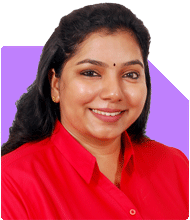34YO No Credit History, How to Build Credit?
Ramalingam Kalirajan |11047 Answers |Ask -Follow
Mutual Funds, Financial Planning Expert - Answered on Aug 23, 2024
He has an MBA in finance from the University of Madras and is a certified financial planner.
He is the director and chief financial planner at Holistic Investment, a Chennai-based firm that offers financial planning and wealth management advice.... more

I HAVE CIBIL PROBLEM WHAT TO DO
Steps to Improve Your CIBIL Score
Check Your Credit Report
Start by getting a copy of your credit report from CIBIL. Review it carefully for any errors or discrepancies. Sometimes, incorrect information can negatively impact your score. If you find any errors, raise a dispute with CIBIL to get them corrected.
Pay Off Outstanding Debts
Clear any overdue payments as soon as possible. Focus on paying off high-interest debts first, such as credit cards or personal loans. Timely payment of EMIs and credit card bills can significantly improve your score.
Maintain a Healthy Credit Mix
Having a mix of secured (like home loans) and unsecured loans (like personal loans) can positively impact your score. If your credit profile is too skewed towards unsecured loans, consider balancing it with secured loans.
Avoid New Credit
Refrain from applying for new credit until your score improves. Each application results in a hard inquiry, which can temporarily lower your score. Focus on maintaining your current credit lines responsibly.
Use Credit Cards Wisely
Keep your credit card utilization below 30% of your credit limit. High utilization can indicate credit-hungry behavior, negatively affecting your score. Pay your credit card bills in full every month to avoid interest charges.
Increase Your Credit Limit
If possible, request an increase in your credit card limit. A higher limit with the same spending reduces your credit utilization ratio, which can improve your score.
Settle Old Accounts
If you have settled accounts with partial payments, they might still be impacting your score. Reach out to lenders to negotiate full and final settlements, and ensure they update your report accordingly.
Regular Monitoring
Regularly monitor your CIBIL score to track your progress. Many financial institutions and apps offer free credit score checks. Staying informed helps you identify issues early and address them promptly.
Managing Financial Goals with a Low CIBIL Score
Loan Applications
If you need a loan, consider applying with a co-applicant who has a good CIBIL score. This can increase your chances of approval. You might also consider secured loans, which are easier to obtain even with a low CIBIL score.
Debt Consolidation
If you have multiple loans or credit card balances, consider consolidating them into a single loan with a lower interest rate. This makes repayment easier and can improve your score over time.
Emergency Fund
Build an emergency fund to avoid relying on credit during financial crises. This fund should cover at least six months of expenses, providing a cushion against unexpected expenses.
Final Insights
Improving your CIBIL score is a gradual process, but with disciplined financial behavior, it is achievable. Prioritize paying off debts, maintain a healthy credit mix, and avoid new credit applications until your score improves. Regular monitoring and timely corrective actions will help you regain control of your credit profile, paving the way for better financial opportunities.
Best Regards,
K. Ramalingam, MBA, CFP,
Chief Financial Planner,
www.holisticinvestment.in
You may like to see similar questions and answers below
Ramalingam Kalirajan |11047 Answers |Ask -Follow
Mutual Funds, Financial Planning Expert - Answered on Aug 21, 2024
Pushpa R |69 Answers |Ask -Follow
Yoga, Mindfulness Expert - Answered on Dec 27, 2024
Nayagam P P |10931 Answers |Ask -Follow
Career Counsellor - Answered on Mar 03, 2026
Nayagam P P |10931 Answers |Ask -Follow
Career Counsellor - Answered on Mar 03, 2026
Dr Nagarajan J S K |2622 Answers |Ask -Follow
NEET, Medical, Pharmacy Careers - Answered on Mar 03, 2026
Dr Nagarajan J S K |2622 Answers |Ask -Follow
NEET, Medical, Pharmacy Careers - Answered on Mar 03, 2026
Dr Nagarajan J S K |2622 Answers |Ask -Follow
NEET, Medical, Pharmacy Careers - Answered on Mar 03, 2026
Ravi Mittal |706 Answers |Ask -Follow
Dating, Relationships Expert - Answered on Mar 03, 2026
Radheshyam Zanwar |6825 Answers |Ask -Follow
MHT-CET, IIT-JEE, NEET-UG Expert - Answered on Mar 03, 2026
Radheshyam Zanwar |6825 Answers |Ask -Follow
MHT-CET, IIT-JEE, NEET-UG Expert - Answered on Mar 02, 2026
Ravi Mittal |706 Answers |Ask -Follow
Dating, Relationships Expert - Answered on Mar 02, 2026
Ravi Mittal |706 Answers |Ask -Follow
Dating, Relationships Expert - Answered on Mar 02, 2026
























